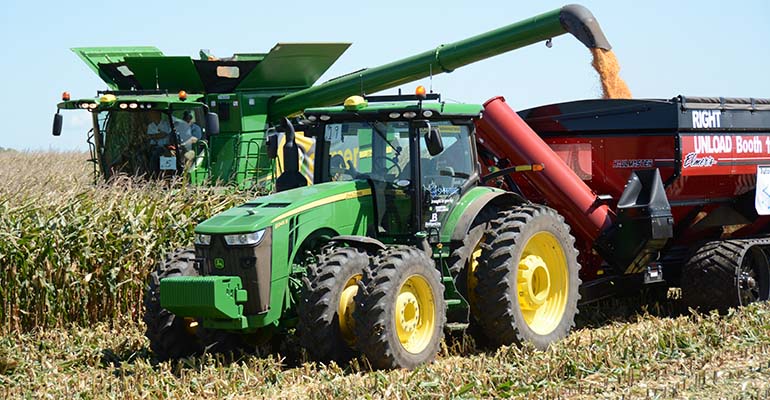November 11, 2020

I’m not sure agriculture has seen a more amazing time, at least perhaps since iron replaced horses. Today’s miracle marriage of iron and electronics is bringing together a range of ideas that will play out in the next decade.
Sure, you’re probably thinking autonomy — a fleet of driverless machines roaming your fields, getting specific work done. And that may be possible. In French vineyards, compact robots cultivate between the rows. In Illinois, a farmer has a “sandbox” where multiple tractors are automated to do specific work.
But autonomy is just one factor. I’ve commented on the robot you’re already driving in the past. After preparing for the Farm Progress Virtual Experience and spending quality time with manufacturers and farmers, one thought became clear: These machines are smart. When a combine can take your idea of a perfect grain sample and keep improving it throughout the day with no intervention from you — that’s a winner.
Harvesting equipment that can fine-tune as conditions change is valuable, especially when good labor is hard to find. Though I’m pretty sure a novice operator isn’t your first choice for combine operator. How about cart driver?
But even the cart driver is changing. With AutoCart from Raven, for example, you can automate tractor and cart operation at harvest. If you want to keep the driver in the tractor, Machine Sync from John Deere will “lock up” the cart and combine for unloading on the go. In these cases, cart driver experience is less important.
However, there may be other changes. Do you need to own a “swarm” of robots for your farm, or would it be better to pay for the service on an as-needed basis?
Farming as a service
The concept of “custom farming” has long been with us. Many a farmer has funded the purchase of a better sprayer by hiring out extra time to the neighbors. In Europe, where farming is done on a much more custom level, the idea of farming as a service is gaining ground.
In this model, you own less equipment and work more on a pay-as-you-go approach. With autonomy and technology, those businesses may gain more traction.
This is custom farming on a whole new level, where you book your business before the season for planting, tillage, in-season spraying and harvesting. Or you might go a la carte and hire planting and spraying while doing tillage and harvest yourself.
U.S. farmers are control freaks. They want to be able to do what they need to do when they need to do it. Farming as a service may not work in this country like it does in areas where farms are smaller, and it makes more economic sense to rent a service than to own a bigger machine.
You need to be able to get in that planter and move the minute the ground is dry enough. Waiting for the “planter service” to arrive may not work for many. But if you’re a midsize farm in search of ways to manage equity and capital investment, looking at some form of custom service might make more sense.
Add in that those custom operators have equipment that self-adjusts for maximum performance so they have no trouble getting labor, and you can see where, in some cases, that approach may work. The big challenge as farming moves forward is whether there’s enough of that business to support the industry.
Farmers are smarter with their capital investment these days. That might lead to more custom business, or even short-term leases to get work done. It’s all in the financials. But with new tech tools that help make machine operation easier, perhaps just about anything is possible.
About the Author(s)
You May Also Like






